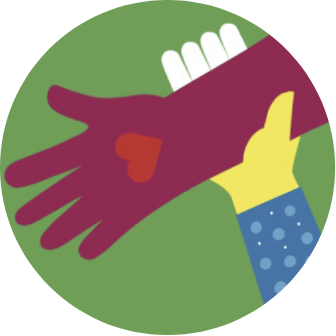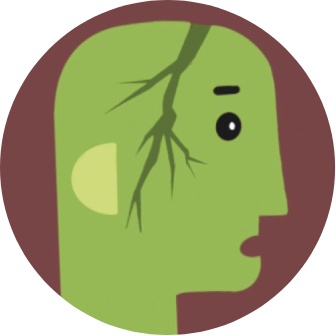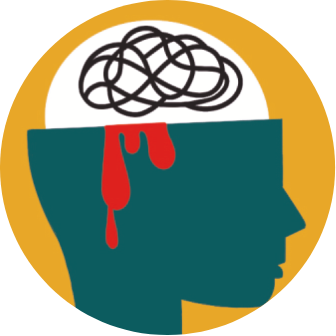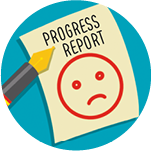
Individual counselling
Individual counselling entails a private psychological discussion session between a trained therapist and a client. It offers a confidential space for the individual to delve into their thoughts, feelings, behaviors, and any challenges they encounter. The counselor assists the individual in gaining insight, developing coping strategies, and striving towards personal growth and positive change.

Sad memories
Sad memories are recollections of past events or experiences that evoke feelings of sadness, grief, or emotional pain. These memories can vary widely in their nature and intensity, ranging from personal losses (such as the death of a loved one) to traumatic experiences (such as abuse or a significant failure). These memories can have a profound impact on an individual emotional well-being and may resurface during times of stress or when triggered by certain stimuli. Processing and coping with sad memories often involve seeking support from others, therapy, or engaging in self-care practices.

Anxiousness
Anxiousness mentions to a state of unease, worry, or apprehension that arises from perceived threats or uncertainties. It’s a psychological condition characterized by feelings of nervousness, tension, and anticipation of future events, often accompanied by physical symptoms like sweating, trembling, or increased heart rate. Anxiety can manifest in various forms, such as generalized anxiety disorder, social anxiety disorder, panic disorder, or specific phobias. It’s a normal and adaptive human response in many situations, but when it becomes excessive or persistent, it can interfere with daily functioning and require professional intervention or management strategies to alleviate.

Dependence
Dependence refers to a state of reliance on something, whether it’s a substance, behavior, or even people, to function normally or achieve a desired emotional or psychological state. It can manifest as physical dependence, where the body adapts to a substance and experiences withdrawal symptoms upon cessation, or as psychological dependence, where reliance is based on emotional or psychological needs. Dependence on people can involve seeking validation, support, or fulfillment from others to cope with challenges or achieve a sense of well-being.

Fear
Fear is a natural emotional response to a perceived threat or danger. However, excessive or irrational fear can disrupt daily life and necessitate intervention or management strategies. Excessive fear responses are disproportionate to the actual threat posed by a situation or stimulus, and they can take various forms, such as fear of spiders, heights, flying, or social situations, along with persistent and excessive worry about various aspects of life. This intense and persistent fear or anxiety can significantly interfere with daily functioning and quality of life. Excessive fear can be debilitating and significantly impact a person’s ability to function at work, school, or in social settings, often necessitating professional intervention, such as therapy or medication, to help individuals manage their fear and regain control over their lives.

Emotional disturbances
Emotional disturbances indicate to disruptions or abnormalities in an individual’s emotional functioning that significantly impact their ability to regulate emotions, interact with others, and maintain overall well-being. These disturbances can manifest as intense or inappropriate emotional reactions, difficulty controlling emotions, or persistent mood disturbances such as depression or anxiety. Examples of emotional disturbances include mood disorders like major depressive disorder, bipolar disorder, and various anxiety disorders. Additionally, conditions such as borderline personality disorder or disruptive mood dysregulation disorder can involve significant emotional dysregulation and disturbances in interpersonal relationships.

Adverse childhood experiences
Adverse childhood experiences (ACEs) refer to stressful or traumatic events that occur during childhood, typically before the age of 18. These experiences can include physical, emotional, or sexual abuse, neglect, household dysfunction (such as substance abuse, domestic violence, or mental illness among family members), or other forms of trauma. Adverse childhood experiences are associated with an increased risk of various mental health issues, such as depression, anxiety, post-traumatic stress disorder (PTSD), as well as physical health problems later in life.

Performance issues
Performance issues denote obstacles or difficulties individuals face when attempting to carry out tasks or meet objectives across different areas of life, including academics, work, or social interactions. These challenges may involve struggles with focus, memory, motivation, or emotional control, among others, and can stem from a range of psychological, environmental, or biological factors.

Frequent failures
Frequent failures refer to repeated instances where individuals experience setbacks or shortcomings in achieving desired outcomes or goals across various aspects of their lives. These failures can lead to feelings of frustration, low self-esteem, or a sense of hopelessness. Psychologically, frequent failures may result from various factors, including skill deficits, ineffective coping strategies, unrealistic expectations, or underlying mental health issues such as depression or anxiety.

Adjustment issues
Adjustment issues encompass the challenges individuals encounter while acclimating to novel or demanding circumstances. These hurdles may stem from diverse stressors, such as shifts in relationships, employment, academics, or health, and can markedly hinder social, occupational, or other facets of functioning. Manifesting as emotional distress, behavioral alterations, or struggles to cope with the demands at hand, adjustment issues are typically perceived as a natural aspect of life, often transient in nature. Nonetheless, when these obstacles endure and markedly disrupt daily functioning and well-being, seeking professional assistance may be warranted.

Loneliness
Loneliness includes a subjective sense of distress or unease stemming from a perceived misalignment between one’s desired and actual social connections. This sensation is influenced not only by the frequency of interactions but also by their depth and perceived intimacy. Loneliness may arise from a multitude of sources, including social isolation, insufficient social support, experiences of rejection or exclusion, or challenges in forging meaningful bonds with others. Such feelings can evoke negative emotions like sadness, anxiety, or depression, and may also contribute to physical health concerns.

Panic attacks
Panic attacks are sudden and intense episodes of overwhelming fear or discomfort that reach a peak within minutes. These episodes are characterized by a combination of physical and psychological symptoms, such as heart palpitations, sweating, trembling, shortness of breath, chest pain, dizziness, and feelings of unreality or impending doom. Panic attacks are often associated with anxiety disorders, particularly panic disorder. However, they can also occur in individuals with other anxiety-related conditions, such as generalized anxiety disorder (GAD), social anxiety disorder, or specific phobias.Panic attacks can be triggered by various factors, including stress, traumatic experiences, major life changes, or specific phobias. They can also occur unexpectedly, without an identifiable trigger, which can contribute to feelings of fear and uncertainty.

Stress
Stress is the body’s natural response to a perceived threat or demand. It can manifest as physical, emotional, or behavioral changes in individuals as they attempt to cope with challenging or threatening situations. Stress can arise from various sources, such as work or academic pressure, relationship difficulties, financial concerns, or major life changes. Psychologically, stress is often categorized into two types: acute stress and chronic stress. Acute stress is a short-term reaction to an immediate stressor, while chronic stress is an ongoing response to prolonged exposure to stressors. Both types of stress can have significant impacts on mental and physical health if not managed effectively.Stress can manifest in a variety of ways, including increased heart rate, muscle tension, irritability, anxiety, depression, difficulty concentrating, changes in appetite or sleep patterns, and decreased immune function.

Addiction
Addiction entails compulsive involvement in certain behaviors or substance use, disregarding adverse outcomes. These behaviors encompass a range of activities, from drug and alcohol consumption to gambling, gaming, shopping, or overeating. This complex condition is influenced by genetic, environmental, psychological, and social factors, altering the brain’s reward system and leading to cravings, tolerance, withdrawal symptoms, and difficulty in controlling or halting the behavior despite negative repercussions.

Marriage Counselling
Marriage Counselling Pre-marriage counseling involves sessions with a trained therapist or counselor to help couples navigate and address various emotional, communication, and relational aspects of their relationship before getting married. It aims to strengthen the bond between partners, enhance communication skills, identify and address potential conflicts or areas of concern, and provide tools to build a healthy and fulfilling marriage. Topics often include communication styles, conflict resolution, expectations, roles and responsibilities, family dynamics, financial management, and intimacy.

Marital issues
Marital issues encompass a wide range of challenges that couples may face in their relationship. These can include communication difficulties, conflicts over finances or parenting, intimacy issues, trust issues, differences in values or goals, unresolved past traumas or conflicts, and mental health concerns such as depression or anxiety.

Family counselling
Family counseling involves therapy sessions that include multiple members of a family unit. The focus is on understanding and addressing the dynamics, patterns, and interactions within the family system. Family therapists work with families to identify sources of conflict, improve communication, resolve interpersonal issues, and strengthen relationships. Topics commonly addressed in family counseling include communication skills, boundary setting, roles and responsibilities, problem-solving strategies, and coping mechanisms for managing stress and conflicts.

Trust issues in marriage,
Trust issues in marriage, viewed through a psychological lens, arise from past traumas, insecure attachment styles, communication challenges, personal insecurities, and previous betrayals. Addressing these issues requires therapy, where couples confront emotional wounds, improve communication, rebuild trust through transparency, and actively participate in the healing process.

Disagreements and arguments
Disagreements and arguments in marriage can indicate underlying issues within the relationship that may need to be addressed. These conflicts often stem from differences in values, expectations, communication styles, and unresolved emotional issues between partners. From a psychological perspective, chronic or unresolved conflicts can erode trust, intimacy, and overall marital satisfaction. They may also be symptomatic of deeper underlying issues such as unresolved trauma, unmet emotional needs, or ineffective coping mechanisms. Furthermore, repeated patterns of conflict can contribute to the development of negative communication patterns and contribute to a cycle of escalating conflicts if left unaddressed.

Parenting and child care
Parenting and child care issues are multifaceted, crucial aspects of children’s well-being and development. They entail grasping diverse parenting styles like authoritative, authoritarian, permissive, and neglectful, and recognizing their effects on children’s behavior and emotional regulation. Effective parent-child communication, understanding family dynamics, cultural influences, and prioritizing parental self-care are also paramount. Overall, addressing these concerns requires nurturing secure attachments, cultivating positive parent-child relationships, and equipping parents with practical strategies to bolster their children’s growth and overall welfare.

Conflicts in Relationships
Conflicts in Relationships encompass a range of challenges that can strain the emotional bond between partners and impact overall relationship satisfaction. These conflicts often stem from differing perspectives, unresolved past traumas, unmet needs, and ineffective communication patterns. From a psychological standpoint, conflicts may indicate underlying issues such as insecurity, fear of abandonment, or difficulty in asserting one’s needs within the relationship. They can also be exacerbated by external stressors such as financial difficulties or family dynamics. Unresolved conflicts can lead to negative emotions such as resentment, frustration, and a sense of disconnection, ultimately eroding trust and intimacy between partners.

Post-Breakup Issues
Post-Breakup Issues encompass a range of emotional, cognitive, and behavioral challenges that individuals may encounter following the end of a romantic relationship. These challenges often include feelings of grief and loss for the relationship and future plans, questioning of one’s identity and self-worth, and experiencing loneliness and isolation as individuals adjust to life without a partner. Additionally, individuals may struggle with rumination, intrusive thoughts, and feelings of anger or resentment towards themselves or their ex-partner. Social withdrawal and fear of rejection in future relationships are also common post-breakup issues.

Post-Divorce blues
Post-Divorce blues encompass the emotional, practical, and social challenges individuals face following the dissolution of a marriage. This period often involves navigating profound feelings of grief and loss for the end of the relationship, as well as questioning one’s identity and self-concept. Loneliness and isolation may accompany the adjustment to life without a partner, while concerns about self-esteem and confidence can arise. Practical issues like financial instability and co-parenting responsibilities add further stress. Additionally, individuals may grapple with loosening relationships with in-laws and related connections, contributing to feelings of disconnection and loss of support networks. Some people experience discomfort from the social stigma surrounding divorce, exacerbating feelings of shame or inadequacy. Relocating to a new environment, whether by choice or necessity, can also introduce additional challenges and uncertainties as individuals navigate unfamiliar surroundings and rebuild their lives.

Haunting Memories of the past
Haunting Memories of the past after divorce present significant psychological challenges for individuals as they navigate the aftermath of their marriage’s dissolution. These memories, encompassing both positive and negative experiences from the relationship, can evoke a range of intense emotions such as grief, regret, anger, and nostalgia. Psychologically, these memories can contribute to rumination, emotional distress, and difficulties in identity reconstruction as individuals grapple with reconciling their past with their present reality. Additionally, haunting memories may reignite feelings of attachment and loss, hindering the grieving process and impeding individuals; ability to move forward.

Traumatic Experiences
Traumatic Experiences in the context of relationships after divorce refer to distressing events or situations that occurred during the marriage and continue to profoundly impact individuals; emotional and psychological well-being post-divorce. These events, which can range from emotional or physical abuse to infidelity or betrayal, leave individuals deeply wounded, fearful, and emotionally scarred long after the divorce is finalized. They manifest through intrusive memories, emotional distress, hypervigilance, avoidance behaviors, negative beliefs, trust issues, and even physical symptoms. Additionally, individuals may experience feelings of guilt related to halfway responsibilities towards the kids, as they grapple with balancing their role as a parent with the challenges of coping with their own trauma and rebuilding their lives after divorce.

Poor scholastic performance
Poor scholastic performance can be attributed to a multitude of factors. These may include learning disabilities or ADHD, which can impede a student’s ability to absorb and retain information. Mental health issues such as anxiety or depression can also significantly impact concentration and motivation, leading to decreased academic achievement. Low self-esteem and negative beliefs about one’s abilities can exacerbate these challenges, creating a cycle of underperformance. Additionally, environmental factors such as stressful home environments, inadequate support systems, or unhealthy habits can further hinder a student’s educational progress.

Behavioral issues
Behavioral issues in children can arise due to a variety of factors. These may include developmental challenges, such as autism spectrum disorder or attention-deficit/hyperactivity disorder (ADHD), which can affect social interaction, communication, and impulse control. Environmental factors, such as family dynamics, parenting style, socioeconomic status, and exposure to trauma or stress, can also significantly impact behavior. Additionally, cognitive factors like learning disabilities or executive functioning deficits may contribute to behavioral difficulties. Furthermore, emotional factors such as anxiety, depression, or unresolved emotional trauma can manifest as disruptive behaviors.

Childhood psychological problems
Childhood psychological problems stem from a complex interplay of developmental, genetic, environmental, cognitive, emotional, social, and cultural factors. These issues can manifest in various forms, including emotional disturbances, behavioral challenges, and cognitive deficits. Developmental disruptions, genetic predispositions, and adverse environmental experiences, such as trauma or family dysfunction, can significantly impact a child’s psychological well-being. Moreover, cognitive processes and emotional regulation play pivotal roles in shaping a child’s responses to stressors and daily life challenges. Social and cultural influences further shape how these problems are perceived, diagnosed, and treated.

Dependence on gadgets
Dependence on gadgets in children can be influenced by several factors. Firstly, the allure of digital devices can provide immediate gratification and sensory stimulation, leading to a reliance on them for entertainment and distraction. This can impact attention spans and impulse control, potentially hindering the development of other essential skills. Additionally, prolonged use of gadgets may disrupt sleep patterns, affect social interaction, and contribute to sedentary lifestyles, all of which can have negative implications for psychological well-being. Moreover, excessive screen time has been linked to mood disturbances, such as increased anxiety and depression, particularly when children engage in unsupervised or inappropriate online content.

Excessive gaming
Excessive gaming in childhood and adolescence can have significant implications. Firstly, prolonged gaming sessions can lead to a sedentary lifestyle, contributing to physical health issues such as obesity and musculoskeletal problems. Moreover, excessive gaming can interfere with academic performance and social development, as it may replace important activities such as studying and face-to-face interaction with peers. Additionally, gaming addiction, characterized by a loss of control over gaming behavior and negative consequences in various life domains, can develop, leading to withdrawal symptoms, irritability, and impaired functioning. Furthermore, excessive gaming may desensitize individuals to violence and aggression, potentially influencing their attitudes and behaviors.

Time management
Time management issues in children and adolescents can stem from various factors. Firstly, developmental factors such as executive functioning skills may still be developing during childhood and adolescence, making it challenging for young individuals to effectively plan, prioritize, and organize their time. This may lead to incomplete regular academic notes, delayed exam paper submissions, late arrivals and departures, etc., accelerating practical difficulties during school days. Additionally, environmental factors such as school demands, extracurricular activities, peer group pressure, and familial expectations can create pressure and overwhelm, leading to difficulties in managing time efficiently. Moreover, the proliferation of digital devices and social media can serve as distractions, impacting attention spans and impeding the ability to focus on tasks. Furthermore, underlying psychological issues such as anxiety, perfectionism, or attention-deficit/hyperactivity disorder (ADHD) can exacerbate time management difficulties.

Peer influence problems
Peer influence problems in children and adolescents can manifest in various ways. Firstly, peer pressure can lead to risky behaviors such as substance abuse, delinquency, or engagement in unsafe activities. Additionally, social comparison and the desire for acceptance among peers can impact self-esteem and body image, contributing to issues like bullying, social anxiety, and depression. Moreover, conflicts and peer rejection can lead to feelings of loneliness and isolation, affecting emotional well-being and social development. Furthermore, adolescents may adopt attitudes, beliefs, and behaviors of their peer group, sometimes at the expense of their own values and goals.

Unpleasant life experiences
Trauma can stem from a wide array of unpleasant experiences, both external and internal, that profoundly impact an individual’s psychological well-being. External events such as physical or sexual abuse, accidents, war, and natural disasters can cause deep emotional wounds. Additionally, interpersonal challenges like bullying, discrimination, family problems, and personal failures can contribute to trauma. Internal struggles such as chronic illness, financial insecurity, and loss of identity or belonging can also result in significant psychological distress. These experiences can lead to a range of traumatic responses, affecting individuals’ thoughts, emotions, and behaviors.

Family problems
Family problems can indeed lead to trauma for couples, children, and extended families. For couples, conflicts, infidelity, or domestic violence within the family unit can result in profound emotional distress and trauma. Such experiences can erode trust, safety, and intimacy, leading to feelings of betrayal, fear, and helplessness. Children exposed to family problems such as parental conflict, divorce, or substance abuse may also experience trauma, as they often lack the emotional and cognitive resources to cope with such stressors. These experiences can disrupt their sense of security, leading to anxiety, depression, and behavioral issues. Furthermore, extended family members may also be impacted by family problems, experiencing feelings of guilt, shame, or powerlessness.

Unsafe situations
Unsafe situations encompass a wide range of experiences that threaten an individual’s physical or psychological well-being. These include personal experiences such as physical or sexual assault, domestic violence, child abuse or neglect, sexual abuse, bullying, and medical trauma. Additionally, individuals may face trauma from broader events such as natural disasters, accidents, combat or war-related violence, terrorist attacks, human trafficking, and racial or hate-based violence. Each of these situations can evoke intense fear, helplessness, and distress, leading to profound trauma and lasting psychological consequences.

Natural disasters related
When faced with the sudden and overwhelming force of natural disasters such as earthquakes, hurricanes, floods, or wildfires, individuals may experience intense fear, helplessness, and a loss of control. The impact of witnessing destruction, experiencing displacement, or losing homes and loved ones can lead to a range of psychological reactions, including acute stress reactions, post-traumatic stress disorder (PTSD), anxiety, depression, and grief. Moreover, the disruption of familiar routines, social support networks, and community infrastructure can exacerbate feelings of isolation and vulnerability, further compounding the psychological impact of the disaster.

Abuse and torture
Experiencing abuse and torture can result in profound and enduring trauma, often manifesting in conditions such as Post-Traumatic Stress Disorder (PTSD), Complex PTSD, dissociative disorders, depression, anxiety disorders, and substance abuse. Survivors may grapple with symptoms like flashbacks, nightmares, hypervigilance, and emotional dysregulation, alongside physical health issues. The trauma can deeply affect their sense of self, relationships, and overall well-being.

Regret and guilt feelings
Individuals grappling with intense regret and guilt often internalize these emotions, leading to self-blame, shame, and a persistent sense of worthlessness. Over time, these negative emotions can contribute to the development of various psychological conditions, including depression, anxiety disorders, and even Post-Traumatic Stress Disorder (PTSD). Moreover, trauma stemming from regret and guilt can manifest in avoidance behaviors, difficulties in forming healthy relationships, and self-destructive tendencies. The fear of making mistakes and the temptation to evade responsibilities can perpetuate a cycle of self-punishment and avoidance, hindering personal growth and development. Consequently, some individuals may continuously punish themselves, driven by feelings of worthlessness and self-blame.

Insecurities
Insecurity casts a heavy burden on individuals grappling with trauma, enveloping them in a pervasive sense of vulnerability and heightened vigilance. Hypervigilance becomes their steadfast companion, as they nervously scan for potential threats, struggle to find moments of relaxation, and are easily startled by their surroundings. Avoidant behaviors emerge as they strive to shield themselves from perceived dangers, while interpersonal relationships strain under the weight of mistrust and fear of betrayal or abandonment. Insecurity corrodes self-esteem, leaving individuals besieged by doubts about their worth and capabilities, entangling them in a cycle of negative self-talk and unrelenting self-doubt.

Ongoing stressors
Ongoing stressors wield significant power in inducing profound psychological trauma. Chronic abuse or neglect, persistent exposure to violence, and surviving natural disasters or armed conflicts impose relentless threats to mental well-being. Similarly, enduring discrimination, oppression, chronic illness, or disability gradually corrodes one’s sense of self-worth and stability, cultivating feelings of helplessness and hopelessness. Financial struggles, toxic relationships, caregiver burdens, and workplace demands compound this load, progressively eroding resilience and submerging individuals into the depths of psychological distress. Furthermore, navigating life alongside individuals battling mental health issues, chronic diseases, substance addiction, or dysfunctional relationships amplifies daily stressors, heightening the strain on psychological well-being.

Fear
Fear plays a significant role in contributing trauma by triggering and exacerbating emotional and physiological responses to perceived threats. Chronic fear can lead to hypervigilance, where individuals are constantly on edge, anticipating danger and scanning their environment for threats, leading to increased stress levels and persistent trauma symptoms. Moreover, fear can drive avoidance behaviors, preventing individuals from processing and integrating their traumatic experiences and perpetuating trauma symptoms. Negative cognitive patterns, such as catastrophic thinking, may also develop, reinforcing feelings of helplessness and hopelessness. Additionally, fear can hinder the formation and maintenance of healthy relationships, as individuals may struggle to trust others and form meaningful connections, further exacerbating feelings of distress and loneliness.

Sickness and health issues
Trauma stemming from sickness and health issues can indeed develop from the onset or diagnosis of a serious illness. This pivotal moment can shatter one’s sense of security and stability, triggering a whirlwind of emotions including shock, disbelief, and vulnerability. Individuals often grapple with intense fear and uncertainty about their future, mourning the loss of their previous health and lifestyle. Furthermore, the physical symptoms and limitations imposed by illness can evoke feelings of helplessness, frustration, and a profound loss of control over one’s body and life circumstances. Chronic pain or discomfort can exacerbate psychological distress, fueling symptoms of anxiety, depression, and even post-traumatic stress disorder (PTSD). Additionally, the social and interpersonal impacts of illness, such as changes in roles and relationships, stigma, and social isolation, can further compound psychological trauma. Witnessing the suffering of loved ones or experiencing medical traumas, such as invasive treatments or medical errors, can also contribute significantly to the formation of trauma.

Sad memories
Sad memories are recollections of past events or experiences that evoke feelings of sadness, grief, or emotional pain. These memories can vary widely in their nature and intensity, ranging from personal losses (such as the death of a loved one) to traumatic experiences (such as abuse or a significant failure). These memories can have a profound impact on an individual emotional well-being and may resurface during times of stress or when triggered by certain stimuli. Processing and coping with sad memories often involve seeking support from others, therapy, or engaging in self-care practices.

Sad memories
Sad memories are recollections of past events or experiences that evoke feelings of sadness, grief, or emotional pain. These memories can vary widely in their nature and intensity, ranging from personal losses (such as the death of a loved one) to traumatic experiences (such as abuse or a significant failure). These memories can have a profound impact on an individual emotional well-being and may resurface during times of stress or when triggered by certain stimuli. Processing and coping with sad memories often involve seeking support from others, therapy, or engaging in self-care practices.

Sad memories
Sad memories are recollections of past events or experiences that evoke feelings of sadness, grief, or emotional pain. These memories can vary widely in their nature and intensity, ranging from personal losses (such as the death of a loved one) to traumatic experiences (such as abuse or a significant failure). These memories can have a profound impact on an individual emotional well-being and may resurface during times of stress or when triggered by certain stimuli. Processing and coping with sad memories often involve seeking support from others, therapy, or engaging in self-care practices.









